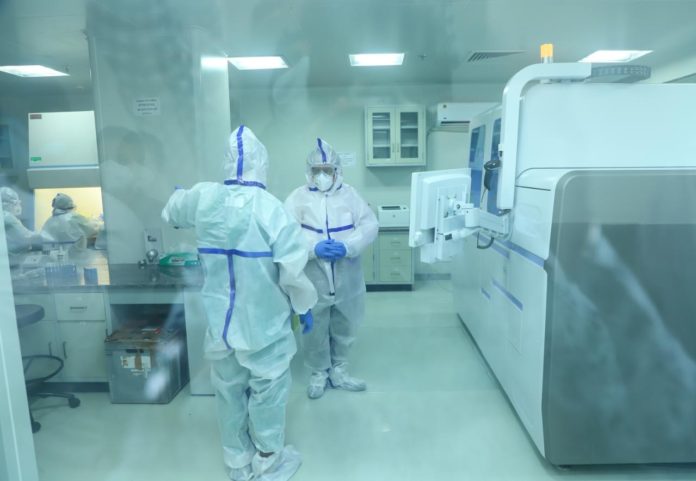As the cases increase in the country of COVID19, India is looking at doubling testing capacity from 1.4 lakh a day to 2 lakh
India is planning to ramp up testing for the Novel Coronavirus Disease (COVID2019) to 2 lakh tests a day. For the last few days the daily testing figures have crossed a lakh. However on Sunday it was 90170.
In a statement, the government of India said: “India now has 609 total labs (431 public, 178 private) and is currently testing ~1.1 lakh samples in a day and have the capacity to test ~1.4 lakh samples per day, which is being raised to 2 lakh samples per day. Most states have been working with National Tuberculosis Elimination Program (NTEP)
to deploy TrueNAT machines for COVID-19 testing. Through this machine, testing is done in such areas/ districts where modern virological laboratory in private or public doesn’t exist.”
“India now has 609 total labs and is currently testing ~1.1 lakh samples in a day and have the capacity to test ~1.4 lakh samples per day, which is being raised to 2 lakh samples per day”
COVID19 test is a molecular test known as RT-PCR (real time polymerase chain reaction test) that requires highly skilled manpower and advanced biosafety level laboratories to perform. Keeping in view the new understanding of the virus and research work being done in India and abroad, ICMR’s testing criteria has expanded to include returnee migrant laborers and front-line workers. Guidelines have also been issued to states advising immediate testing for symptomatic and home quarantine for asymptomatic migrant laborers.
“Due to this, the testing infrastructure is not overwhelmed in any state to date. No state
has significant backlog of samples to be tested. More labs are being set up and additional machines are deployed in States like UP, Bihar, West Bengal as well as rest of the country to meet possible higher requirement,” added the statement.
While laboratory diagnosis of COVID19 may seem simple to many but preparing a
laboratory to offer correct molecular diagnosis of viruses requires specialized capacity. There are several safeguards starting from sample collection in the field to sample handling and testing in the lab to disposal of infectious material from the lab where even small errors can lead to wrong diagnosis or laboratory outbreaks. Adequate checks and balances at each point are critical especially with SARS-CoV-2 being a high-risk pathogen having high infectivity and transmissibility.


